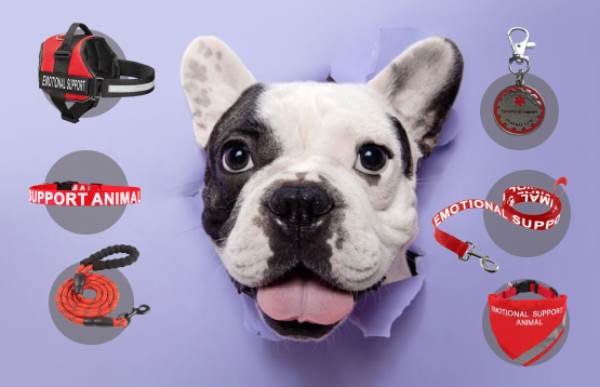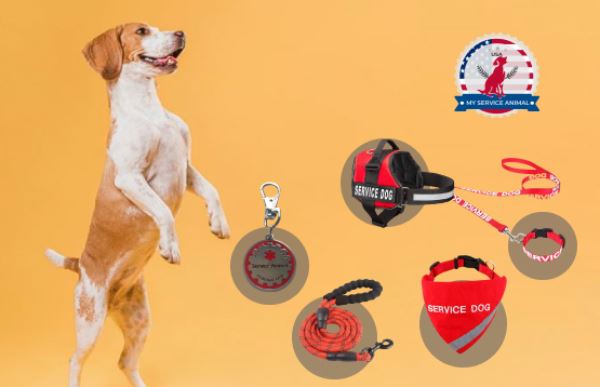The importance of animals for human well-being is becoming increasingly clear. The lack of healthy relationships with the outside world in most people leads to an increasing number of depressions, stressful conditions, loneliness and various types of diseases. The use of animals in medicine is a scientific method for the treatment and prevention of serious diseases, including mental ones. Psychologists often use not only animal symbols and images, but also real animals.
Mental disorders are just as serious a disease as physical ones. They significantly impair a person’s quality of life and limit him or her. Along with depression and anxiety, one of the most common mental disorders in people of all ages is obsessive-compulsive disorder.
The most terrible thing about OCD is that a person is aware that his or her actions or thoughts are not normal, but at the same time he or she cannot cope with this disorder on his/her own or stop acting in one way or another. It is in these situations that emotional support animals are the perfect solution. These are true friends who will always be there and will distract you from obsessive thoughts and rituals.
How ESAs affect person’s state?
The positive influence of animals on the psychological and emotional state of a person has been repeatedly proven by many scientists in this field. Playing with pets cheers up, allows you to escape from the daily routine and even change the character of a person. Firstly, the constant presence of a pet nearby helps to get rid of the feeling of loneliness. Many people may feel abandoned and unwanted due to their mental disorders. An animal is a true friend who is always ready to be with you, to give his love and care.
Animals help to calm down faster during attacks, such as panic attacks. ENAs also feel any change in the human condition and will be there during times of crisis when you most need their support. In addition, thanks to animals, people become more affable and outgoing. This is due to the fact that the animal gives a sense of security, “watches the back” of its owner. In addition, animals are an excellent occasion for acquaintance and a topic for conversation.
Moreover, animals contribute to the improvement of the physical form of their owners. Thanks to pets, people begin to adhere to a clear daily routine, the quality of sleep improves. Daily walks in the fresh air and exercise with the animal also help to distract, clear the mind and keep fit.
Learn more How Emotional Support Animals Help People

Mental frustrations that can be cured by ESA
Emotional support animals can help people suffering from various mental and emotional disorders. The most common examples are depression, anxiety, PTSD, OCD, social anxiety, and even autism in children.
People suffering from anxiety often experience excitement, restlessness, or feelings of unreality. Severe anxiety can be felt physically. You may feel like you are having difficulty breathing, you may feel pressure in your chest, or your heart may palpitate. The animal helps to distract from these thoughts, calm down before important events and put your thoughts in order.
During depression, a person’s mental activity is inhibited, mainly its emotional-volitional component. That is, a person actually stops experiencing any emotions, it is difficult for him to identify his feelings, and everything around seems gloomy. The animal is able to alleviate this condition, bring colors to life. Next to his pet, a person gradually returns to himself good emotions such as joy, happiness and love.
Another important mission of emotional support animals is to help veterans suffering from post-traumatic stress disorder. This frustration is accompanied by many different symptoms, including panic attacks, flashbacks, phobias, and sleep disorders. The animal helps you connect with reality, helps you get through such episodes more easily, and can even wake you up during bad dreams and nightmares.
Learn how Emotional Support Animal helps for Anxiety
Obsessive-compulsive disorder
Obsessive-compulsive disorder (OCD) is a disorder that causes obsessive thoughts that can lead to compulsive actions. If the compulsive behavior takes up at least one hour a day or impairs your quality of life, you may have obsessive-compulsive disorder. This disease usually begins in childhood or adolescence and affects at least two percent of the Swedish population.
A sick person is almost always aware of his irrational behavior and wants to get rid of it, but cannot, because if the obsessive action is not observed, anxiety and other unpleasant emotions arise. People with OCD often need control and routine. Obsessions are recurring thoughts, desires, images that confuse. These can be fear of infection or contamination, unwanted or taboo thoughts, aggressive thoughts about yourself or others, and the desire to organize everything symmetrically or perfectly.
Compulsions, or uncontrolled actions, are repetitive behaviors that an OCD person seems to have to commit as a result of obsessive thoughts. Common compulsions are excessive cleaning or washing of hands, arranging things in a certain way, continuous checking of closed doors, covered gas and turned off the iron, as well as constant counting mentally or aloud.
All this significantly improves the quality of human life. The person becomes obsessed with their disorder, unable to do their job or even leave the house in peace. People with OCD are often late because rituals take a long time to complete. That is why this disease must be treated as soon as possible.
The symptoms of the malady
This disorder is characterized by two main symptoms: obsessions and rituals. Repetitive thoughts that make you feel anxious – “obsessions” or “obsessions”. It can be unpleasant words or phrases, mental pictures or doubts. For example, often people suffer from thoughts of illness, violence and death (of their own or loved ones). They worry that something bad might happen (terrorist attack, catastrophe, fire, flood, etc.), think about harming loved ones, suffer from obsessive thoughts about pollution and the cleanliness of their own body, obsessive ideas associated with sexual images.
Rituals – actions aimed at reducing the severity of obsessions and associated anxiety and bad mood. This can be frequent washing of hands and body, counting, actions and movements performed in a certain sequence and a certain number of times (tying shoelaces, turning lights on and off, closing doors), double-checking one’s own actions a huge number of times, scrolling through one and those the same phrases.
How can ESA help humans with OCD?
Treatment for obsessive-compulsive disorder is strictly individual, it is selected by the doctor depending on your condition. But there are general guidelines. For example, people with OCD must gradually reduce their “rituals” to a minimum. To do this, you first need to overcome obsessive thoughts. The animal helps with this.
Petting with an animal helps to distract and put your thoughts in order. The animal calms the person, helps to overcome anxiety and anxiety, due to which OCD often occurs. Animals are able to reduce stress levels, stabilize breathing and heart rate. Taking care of the animal and daily walks with it gradually replace the obsessions of the person.
A person gets rid of aggression and suicidal thoughts. He or she begins to better distinguish between what is really important and what conditions are imposed by the disorder. Moreover, a person feels protected, which is especially useful if one of the manifestations of OCD is a constant sense of danger and rituals designed to protect oneself.

Getting an ESA
If you are being treated for OCD, you may want to ask your therapist about emotional support animal registration. If the specialist believes that the animal will help you deal with your condition more effectively, he will issue you an ESA letter. Or you can get an ESA letter online. This document confirms that you need an emotional support animal to speed up and improve the results of your mental health treatment.
In the case of obsessive-compulsive disorder, you need to be very careful. It all depends on what kind of obsessive thoughts you visit. For example, if they are associated with cleanliness and a fear of dirt, the animal could be an even bigger trigger for you. The same applies to people who are afraid of viruses and diseases. That is why the decision to assign you an emotional support animal as a companion should only be made by a qualified professional in this field. Only a specialist will be able to thoroughly study your condition and understand how ESA will be useful to you.
Renting an apartment with an Emotional Support Animal
One factor that may seem like an obstruction to getting an emotional support animal is the problems that can arise when renting a home. However, the ESA is not just a pet, so different rules apply to them. Although the ESA may not enjoy all the benefits of service animal status, in the field of housing, the rights of these creatures are the same.
There is a special law that regulates the rules for emotional support animals living with their owners. Because in the event of a serious mental disorder, a person cannot be left alone, lest his condition worsen, federal law allows ESAs to live with their owners. This is where the ESA letter from your therapist comes in handy.
The landlord has no right to refuse you accommodation with an animal without good reason. At the same time, ESA accommodation is absolutely free and does not even require payment of a deposit for a pet. Violation of these rules or refusal of the landlord to accommodate you with an animal may be regarded as discrimination. If you have been the victim of mistreatment of you or your emotional support animal, you can contact the appropriate authorities to protect your rights.









